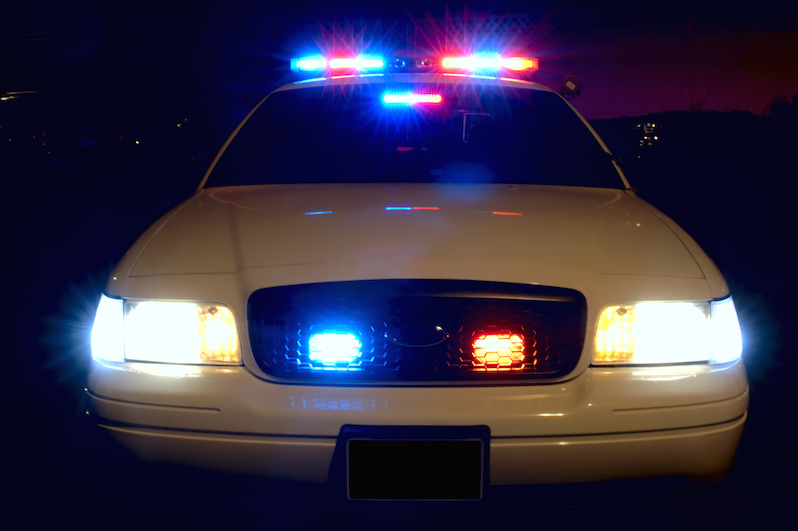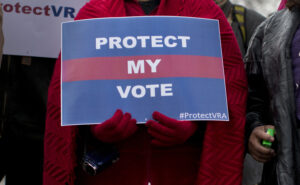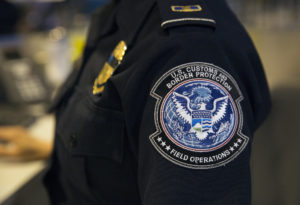Data-Grabbing ‘Stingrays’ Are Attacking Our Civil Liberties
The secrecy surrounding police use of these "anti-terrorism" devices in ordinary criminal investigations is a big and growing problem, ACLU experts say, one that puts some defendants at an unfair and illegal disadvantage. Carolina K. Smith, M.D. / Shutterstock
Carolina K. Smith, M.D. / Shutterstock
A recent report by the American Civil Liberties Union revealed that Michigan police have been using portable cellphone tracking devices—so-called Stingrays and Kingfish among them—to investigate crimes since 2006. These devices are designed to imitate cell phone towers in order to gather metadata from cellphones in their vicinity. Police departments claimed to have purchased the equipment as a counterterrorism measure, but in fact it has been used for 128 “run-of-the-mill” investigations in Michigan, including burglaries and robberies.
One reason this is concerning is that police agencies have been required to sign contracts with Harris Corp., the company that makes the devices, saying they will not reveal they are using them. The devices are being used by police departments across the country, as well as the IRS.
“We [now] have a much better handle on the incredible magnitude of use and proliferation of this technology,” Nathan Wessler, staff attorney with the ACLU’s Project on Speech, Privacy, and Technology, told Truthdig. “We now know of 57 state and local agencies and more than a dozen federal agencies that have bought these devices, and surely there are many more that have bought them or are borrowing them,” he said.
Wessler said police departments get the devices with grants from the Department of Homeland Security (DHS) for the ostensible purpose of fighting terrorism. However, he noted, the DHS doesn’t check on how they are used once police departments have purchased them.
Wessler was instrumental in establishing that officers in Michigan have been using these devices, and he has been tracking their use nationally. “Efforts are now turning from transparency—just figuring out what’s going on—to substantive oversight,” he said.
As more information is uncovered showing the widespread use of these devices, the number of legal battles involving their use has grown.
The DHS and the Department of Justice now require warrants before their agents can use the devices, unless it’s to protect the president, but in many places, state and local law enforcement is not bound by this requirement.
Washington, Virginia, California, Minnesota and Utah have passed laws that place some restrictions on the use of cell phone tracking devices, but civil libertarians say there’s still a lot of work to do. “Police in Baltimore have used their Stingrays in more than 4,000 investigations, including a ton of investigations of just stolen cellphones, which are pretty trivial as these things go. Their ability to keep this totally secret is starting to crumble,” Wessler said.
Stephanie Pell, assistant professor and cyber ethics fellow at West Point’s Army Cyber Institute, has been focused on issues the devices raise. She’s concerned that judges might be authorizing their use without realizing their capabilities or being cognizant of the fact that they can scoop up data from people who have nothing to do with a criminal investigation.
Pell believes that when the tracking devices spark enough legal battles, the national conversation could force state and federal laws to change.
“The legal challenge will generally come when someone is indicted and the government has to turn over the evidence it intends to use against them, and that oftentimes includes what kinds of surveillance techniques were used,” she noted. “There are various ways to challenge that, on Fourth Amendment or other grounds.”
But police departments may resist revealing their use of Stingray and similar devices.
According to Deborah Levi and Andrew Northrup, Baltimore assistant public defenders who have dealt with cases involving Stingray use, police often don’t tell defense attorneys they used cell phone trackers in their investigations. Failure to disclose such information is occurring even though the U.S. Constitution requires prosecutors to reveal all evidence used to prove a case. Furthermore, “Maryland rules specifically require the state to provide, without request, any evidence related to search warrants, affidavits and electronic surveillance,” Levi said.
“We have hundreds of cases that have gone to trial or gone through a guilty plea without ever learning about the Stingray use, because they hold all of this information in secret,” Levi said.
“We just have to be very adept at spotting clues that Stingray has been used,” Northrup said. Instead of having all the tools necessary to present a defense, the public defenders often have to proceed as though key information is missing.
Levi and Northrup said Baltimore Police Department personnel have denied using cellphone trackers during a trial, only to later reveal that the devices actually were used in the investigation. And in one case, police didn’t reveal they had used a Stingray until a year into the case; the defendant had been in jail the entire time before the information came to light.
“The entire integrity of the criminal justice system relies on the honor code,” Levi said. “They need to give us what they have so we can play fair and present a defense. We cannot defend against that which we do not know exists. That’s where the system breaks down.”
Northrup and Levi are concerned that cellphone tracking technology might be even more advanced and intrusive than they know. According to a report on the website Wired, Stingray can actually record conversations, rather than just picking up metadata.
“I sort of suspect what we’re learning about now is from two or three generations ago,” Northrup said.
Abuse of new technology clearly is putting defense lawyers and defendants at a disadvantage, one that is both unfair and contrary to the law of the land. Advances in science and technology need to correlate with the continuing protection of civil liberties, and perhaps the only way that will happen is one court case at a time.
Your support matters…Independent journalism is under threat and overshadowed by heavily funded mainstream media.
You can help level the playing field. Become a member.
Your tax-deductible contribution keeps us digging beneath the headlines to give you thought-provoking, investigative reporting and analysis that unearths what's really happening- without compromise.
Give today to support our courageous, independent journalists.






You need to be a supporter to comment.
There are currently no responses to this article.
Be the first to respond.